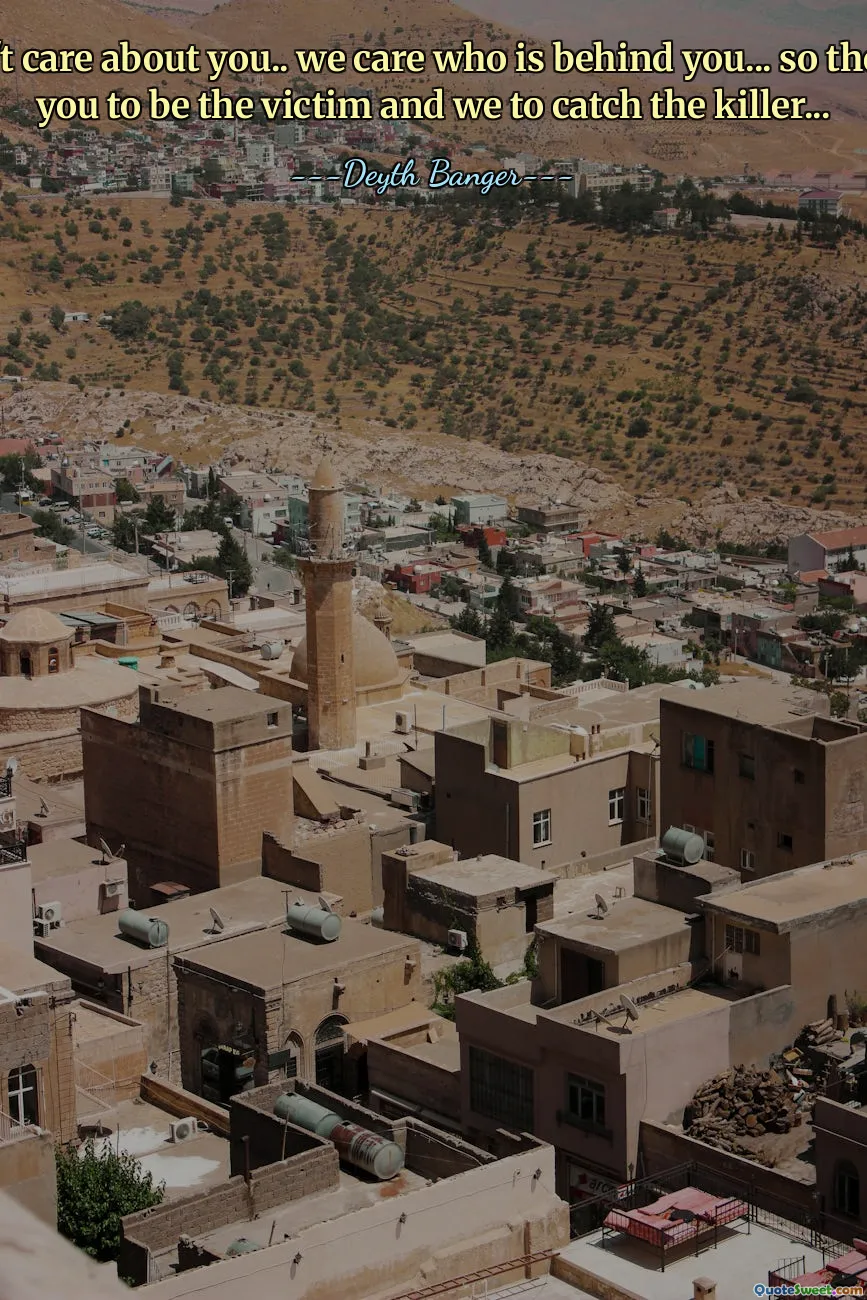
We don't care about you.. we care who is behind you... so the idea is you to be the victim and we to catch the killer...
This quote delves into themes of manipulation, deception, and the nature of societal or organizational power dynamics. It suggests a scenario where the individual is intentionally kept as a scapegoat—the perceived victim—while those in control or behind the scenes manipulate the circumstances to serve their own purposes. This perspective raises awareness about how appearances can be deceiving, and it highlights the potential for exploitation within systems that prioritize covert agendas over genuine concern for individuals.
The statement also prompts reflection on the importance of understanding underlying motives rather than just surface realities. It implies that the victim's identity might be less significant than the true puppeteers pulling strings behind their facade. In a broader context, this can relate to political theaters, judicial cases, or social narratives where the true culprits remain hidden, manipulating perceptions to divert accountability.
Furthermore, the quote encourages skepticism about authority figures and societal narratives that often place blame or focus on visible victims while concealing the masterminds at the helm. It serves as a reminder to critically assess information and question the legitimacy of what is presented to us as truth.
This perspective is especially relevant in an era of widespread misinformation and complex power structures. Recognizing the distinction between victims and those who manipulate or control the situation is crucial not only for understanding societal issues but also for fostering awareness and agency in one’s personal and civic life.
---Deyth Banger---










